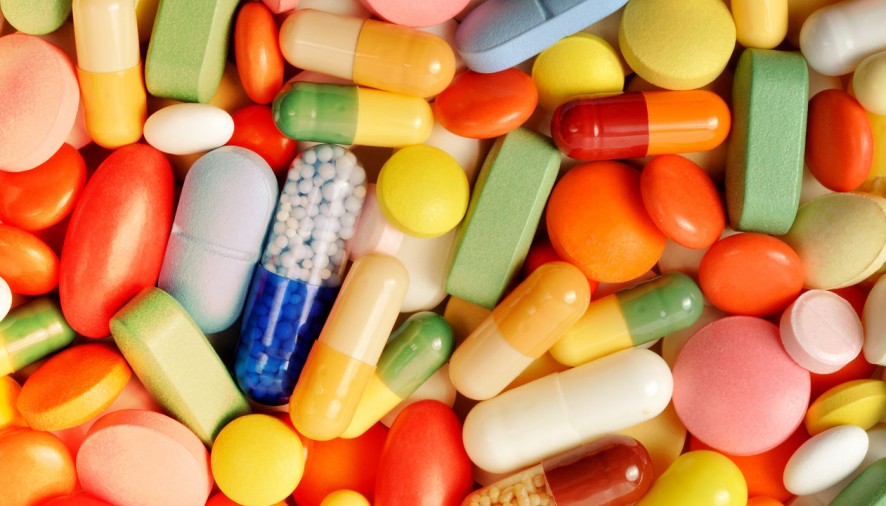In a field hospital, at the centre of World War II, the surgeon Henry Beecher is operating on a severely wounded soldier. If he doesn’t receive an injection of morphine, there’s a risk the soldier will go into cardiovascular shock and die. However, during the war morphine is in short supply. Instead, one of the nurses fills a syringe with saline and gives that shot to the soldier. The soldier calms down and says he’s no longer in pain and doesn’t go into shock, allowing the surgeon to operate. This is one of the earlier recorded examples of the placebo effect at work.
The placebo effect involves the use of a supplemental treatment which has no medicinal value, usually consisting of a sugar or saline solution, but nonetheless administration of this compound results in a measured improvement in the patient’s condition. This phenomenon has been well documented and many attempts have been made to understand the reasons behind this mysterious effect. Recent evidence indicates that the placebo effect may not only have increased but it may determine how we respond to current drugs and be influence the development of new drugs.
A group of researchers at McGill University, Montreal, have analysed the effect on pain relievers in clinical trials undertaken since 1990 in Europe, Asia and America and have found some surprising results concerning the placebo effect. The paper, published in the journal Pain, suggests that over the past 25 years people have become more susceptible to the placebo effect, however this effect was only seen in trials carried out in America. The reason behind this localised placebo effect remains unclear, but Jeffrey Mogil whom directed this research suggests that “Either there’s something about Americans, or there’s something about American trials.”
While this geographical trend adds a new element of intrigue to the placebo effect, previous research has found that the placebo effect has the potential to influence the effectiveness of currently available drugs. For instance, research into the impact of the placebo effect on patients suffering depression suggests that a person’s reaction to antidepressants is influenced by how they react to a placebo drug. This is particular evident in a study where participants underwent a brain scan and received a saline injection, but were told it was a strong and effective antidepressant.
Following the brain scan participants reported a decrease in the severity of depressive symptoms. Prior to a second brain scan participants were given a real antidepressant and it was observed those who responded positively to the placebo, responded even stronger to the actual treatment and exhibited fewer depression symptoms. While this study examined the placebo effect, we still do not fully understand the mechanism behind it.
However, the recent Pain study at McGill University identified a number of factors which may influence a person’s susceptibility to the placebo effect, in particular why Americans appear to be increasingly susceptible.
Firstly, Americans have a fairly unique interaction with their pharmaceuticals; only in the United States and New Zealand are companies allowed to directly market prescription drugs to consumers. Therefore, it is possible that market advertising has influence on how effective Americans believe their drugs are.
Secondly, the increased placebo effect in American clinical trials can be explained by the difference between trials conducted in the US and those conducted elsewhere. For instance, trials held in the U.S consist of, on average, 400 people per group and can last for 12 to 16 weeks. Meanwhile trials undertaken outside of the US are relatively smaller and shorter, consisting of around 70 people and lasting up to 6 weeks. This explanation is supported as data from the past 25 years of clinical trials suggests that longer, larger trials have a greater placebo effect. The impact of this revelation is still uncertain, however it has been implied that this could change how companies conduct trials in the future. For example, many of the drugs which are tested in clinical trials are compared to a placebo compound. If the placebo effect is strong enough it could result in new drugs being rejected as the placebo will appear more effective than the actual drug. This could limit the amount of effective drugs which successfully pass clinical trials, thus limiting the amount of potentially effective drugs available to patients.
Overall, the evidence indicates that the placebo effect is not only real but is getting stronger and could have major consequences for the development of drugs. On the one hand, it has been observed that the placebo effect can improve the response to treatments such as antidepressant. However, on the other hand, using the placebo effect to measure the effectiveness of a drug may negatively impact the number of drugs which are developed. It would appear that the placebo effect may be a double edged sword, one which will impact the future of how we develop and assess the action of future therapeutics.
Steven Gibney
Image source: www.fastcoexist.com

